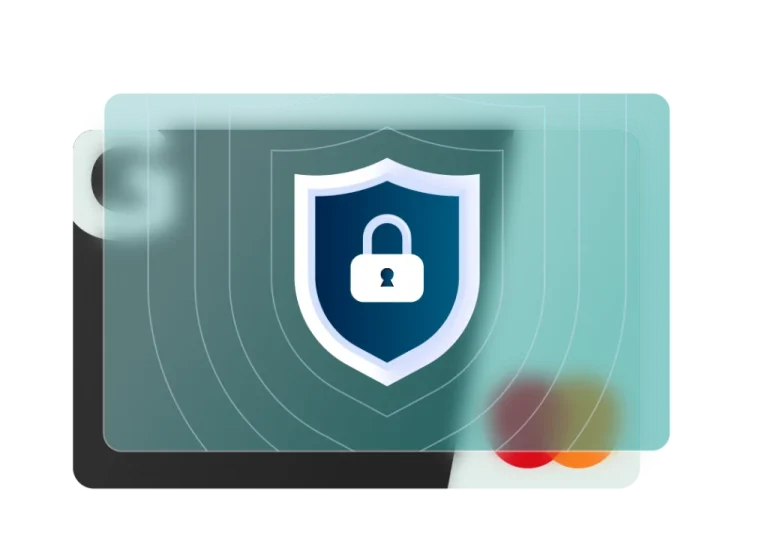Enhance online privacy
Pay with virtual cards
Why virtual cards better protect your data in a digital world

Why virtual cards better protect your data in a digital world
July 03, 2025 – Control your online spending with a Getsby Virtual Mastercard-a secure, (one-time) payment option designed for maximum privacy. Whether you support digital content, make subscriptions or make one-time purchases, our virtual cards ensure your personal financial information remains protected.
Each Getsby Card has a unique 16-digit number, so your real bank or credit card information is never exposed. Plus, non-reloadable cards offer extra peace of mind, as your spending is limited to exactly the amount you choose.
Don’t be limited by traditional payment methods and take control of your online privacy with Getsby Virtual Cards – the smart, secure way to reduce your digital footprint.
When using online platforms, including websites, mobile apps, social media or software, personal data must be protected based on European privacy law: the General Data Protection Regulation (GDPR)
According to the Personal Data Authority’s website, personal data is “any information about an identified or identifiable living natural person.”
In addition to a person’s name and home address, this personal information includes other information such as phone number, credit card or allergies.
Rubrik Zero Labs’ study, ‘The State of Data Security in 2025: A Distributed Crisis’ found that 90% of companies experienced cyber attacks in 2024. 17% of these companies even had more that 25 attacks per year.
The chance of your personal data being stolen unwanted is greater than we sometimes realize. Protecting your personal data reduces your risk when companies and organizations are victims of cyberattacks.
Getsby focuses primarily on protecting bank and/or credit card data through virtual cards.
A virtual card, also called a temporary or disposable prepaid credit card, is an online payment method that can be created through a website or mobile app. Unlike regular debit or credit cards, there is no physical version of this card. You only receive the 16-digit card number, CVV and expiry date.
Virtual cards offer an extra layer of security for online purchases by shielding your personal and regular financial information. In addition, they usually have a limited balance, making unwanted transactions a thing of the past in many cases.

We have listed the 4 main reasons for you:
We explain them further below.
Let’s start with payment data protection. In recent years, the number of people purchasing products and services online has increased significantly. To pay for them, consumers are asked to use their bank or credit card information. Unfortunately, the number of data breaches and cyber-attacks has also increased.
In the unpleasant event that your real bank and/or credit card information has been stolen by hackers during a data breach, it does not only pose financial risks. In some cases, hackers also gain access to other personal information, such as address, employers or transaction records. This information can be used to open bank accounts or loans.
Goods and/or services can often be obtained at lower prices from questionable websites whose origin cannot always be traced. You may not trust the website or Internet services with your real bank or credit card information. In such cases, you want to prevent the provider from having your bank account or credit card number, allowing them to perform unwanted transactions.
One of the most common causes of discord within relationships is money matters. In the case where partners have a joint account, both have access to the bank and/or credit card statement to see expenses.
Some people don’t like being (constantly) accountable to the other for what the money is spent on. In that case, partners may need privacy on what they spend their money on.
After ING was found guilty of negligence in preventing money laundering in 2018 (and later ABN AMRO, 2021), Dutch banks ABN Amro, ING, Rabobank, Triodos and de Volksbank jointly set up Transaction Monitoring Netherlands (TMNL).
The initiative was to monitor not only suspicious transactions related to the Money Laundering and Terrorist Financing Act (the Wwft), but also unusual transactions. It even went so far as to talk about monitoring transactions as low as €100. Mind you, the Netherlands is one of the few countries where unusual transactions are monitored.
However, the European Parliament has determined that Dutch banks have gone overboard in this, and must conform to European rules on transaction monitoring. As of July 2027, the new European Anti-Money Laundering Regulation (AMLR) will go into effect. Until then, therefore, Dutch banks can and may still unnecessarily monitor the payment behavior of their customers.
Getsby has two prepaid virtual cards for protecting your payment information online: Green and Black. Both have advantages, for example, the Green Card is reloadable, while the Black Card is the most secure.
With the Green Card, you make a choice to pay at online providers you trust more, but may not want to share your payment information. Or you may not want to encounter payments from online subscriptions on your bank statement.
Our Black Cards are upgradable once and you can use them until the balance runs out. For each transaction then order a new one and reload it. The big advantage of the Black Cards is their high security, as you receive a unique 16-digit card number each time.


Within two minutes of your payment, you will receive an access code for your virtual card by e-mail. After activation, you can use your unique 16-digit card number for your online transaction, keeping your real credit card number safe.
Possible reasons for a declined transaction
In some cases, transactions with your virtual card may be declined. Common reasons for this include:
You have up to three attempts to retry the payment before the card is blocked.
Exchange rate fees on international purchases
Please note that exchange rate fees may apply for online purchases outside the Eurozone. Always check the current Mastercard exchange rates for USD and GBP, including a 2.00% surcharge, before charging your one-time card. (link)